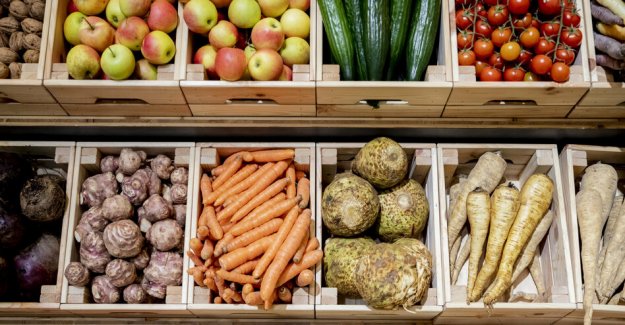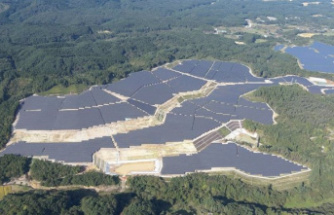Individual companies to identify the CO2 footprint of their products. Important mandatory Standards, are the food expert, Britta Schautz said.
Unprocessed food from the Region, a small CO2-footprint photo: Reuters
taz: Mrs. Schautz, the manufacturer of vegetarian and vegan foods Quorn have to draw starting in June, the CO2 footprint of its food with a Logo. This is useful for you?
Britta Schautz : In principle, a labelling of a product's climate effect can be useful. Many people are aware of the climate, and want to know where their food comes from, whether you have a good CO2 balance, and what resources were needed in the production. However, the practical implementation of such a labelling is very difficult.
Why?
Because the CO2 footprint of a single product of very many factors that must be taken into account in the marking of all. In the case of unprocessed foods such as fruit and vegetables worked this is relatively easy in the case of processed foods, however, is sometimes difficult. The question of whether it is a vegetable or animal food, and the length and type of the transport route presents itself.
food is an expert at the Verbraucherzentrale Berlin.
How is the CO2 balance with a vegetable and fried Rice from the frozen food aisle in the supermarket consists, for example?
Exactly in such a processed and composite foodstuffs, the calculation of the CO2 footprint is difficult. The supply chain is crucial. We assume that the manufacturer of the vegetable stir-fry gets its peppers from the Netherlands. If there but time is not available, fails to perhaps China and the vegetable flies, which may have been grown with more pesticides. The CO2 balance would then be in some batches of the rice pan is much higher than in the other. Accordingly, it is difficult to calculate and also a possible identification.
Then every company could expect his own CO2-footprint, sealed with their own methods beautiful. We don't need because of the policy set binding Standards?
Yes. Science should determine how a Standard might look like, which is then legally binding. At the same time, there should be an external control. Indeed, a key point for the marking of the comparability between the foods, similar to organic labels or the nutrition table. It is an object of the policy to regulate this. Because otherwise, we won with the new label nothing but confuse consumers*the inside only.
Minister of agriculture, Julia Klöckner (CDU) holds the obligations, relatively little. The announced traffic light Food should remain voluntary for companies.
voluntariness, I think, is the wrong way. So before companies would use the label, which already have a good CO2 balance. Or the consumers*the inside think products without seal of cause in the production, no CO2. Politically, however, it is because of our European food law, time-consuming, that all countries coordinate with each other. Nevertheless, individual countries such as Denmark, are pioneers. There, the policy, developing a seal.
And Germany?
Alone on the food traffic light we are discussing now for at least ten years, and until now it is not mandatory. The implementation is difficult, because the calculation is complex and the Standards must be binding. Thus, this is not likely to be implemented in a timely manner.
Date Of Update: 11 January 2020, 11:00












